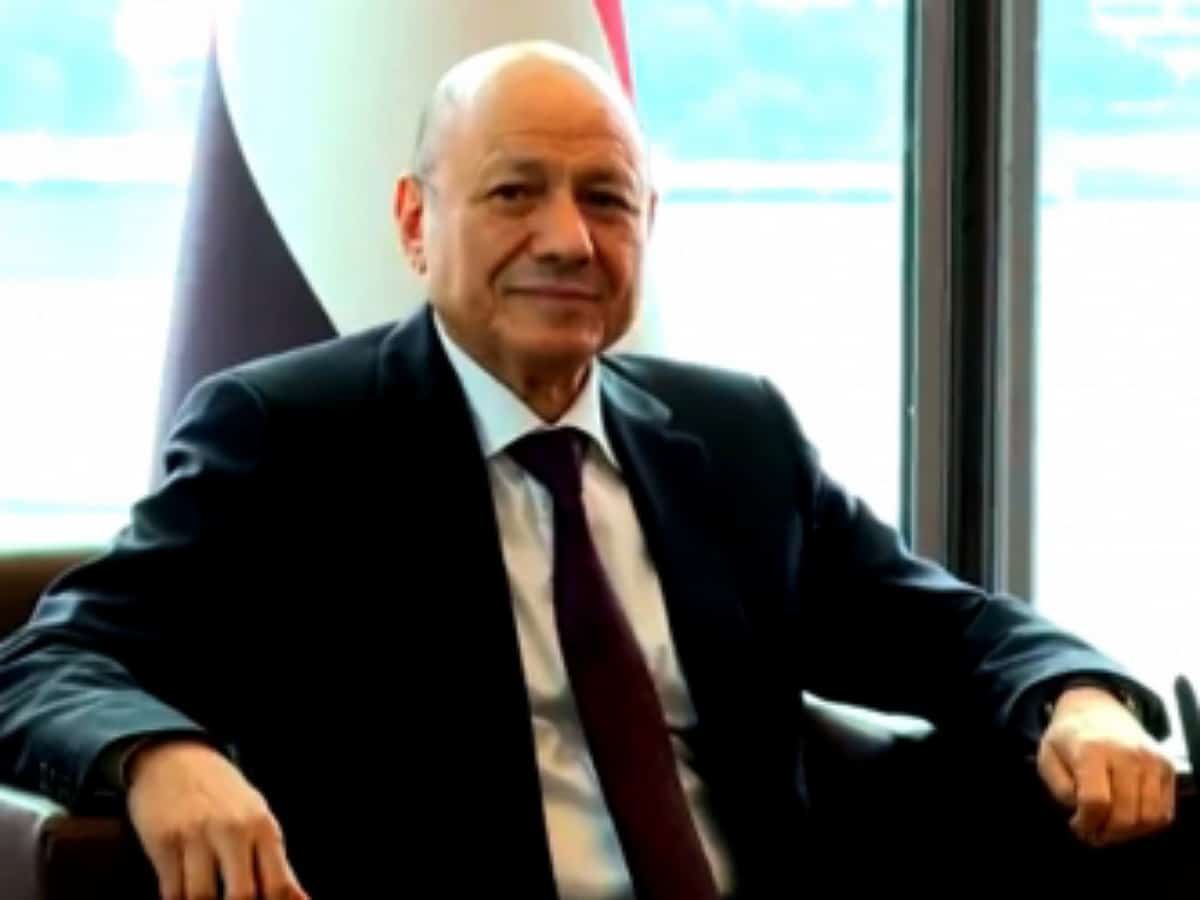
Aden: Chief of Yemen’s Presidential Leadership Council (PLC), Rashad Al-Alimi, has renewed his calls for a comprehensive ceasefire during Muslim holy month of Ramadan.
In a speech marking the start of Ramadan, Al-Alimi on Wednesday said his government and regional allies have made numerous concessions and initiated various efforts to restore peace and alleviate the suffering of the Yemeni people.
However, he noted that the Houthi fighters continued in undermining the peace efforts as they are still rejecting offers suggesting humanitarian ceasefire in the war-ravaged Arab country, Xinhua news agency reported.
He expressed his government’s hope that “the joy of families would be expanded during the holy month with the release of all detainees, in accordance with the principle of all for all”.
The Yemeni leader assured that the Saudi-backed Yemeni presidential council and the government would spare no effort to secure the release of all detainees, including those covered by the UN Security Council resolution.
In recent years, there have been several attempts by the United Nations backed by regional and international powers to broker a peace deal between the warring parties, but all have failed to bring about lasting peace.
The recent call for a comprehensive ceasefire during Ramadan by the Chief of Yemen’s PLC is the latest effort to end the conflict and alleviate the suffering of the Yemeni people.
The Yemeni leader’s hope for the release of all war prisoners, in accordance with the principle of all for all, indicates a willingness to make concessions and prioritise the well-being of the Yemeni people over political gains, according to local observers.
Yemen has been embroiled in a devastating civil war since 2014, with the Houthi rebels fighting against the internationally-recognised government and its allies, which include a Saudi Arabia-led coalition.
The UN has been pushing for a ceasefire and peace talks in Yemen, which has been described as the world’s worst humanitarian crisis.
The conflict brought the Arab world’s poorest country to the brink of collapse causing famine and widespread suffering as well as disrupting the country’s food supply chain, leaving millions of people without access to adequate nutrition.
(Except for the headline, the story has not been edited by Siasat staff and is published from a syndicated feed.)

